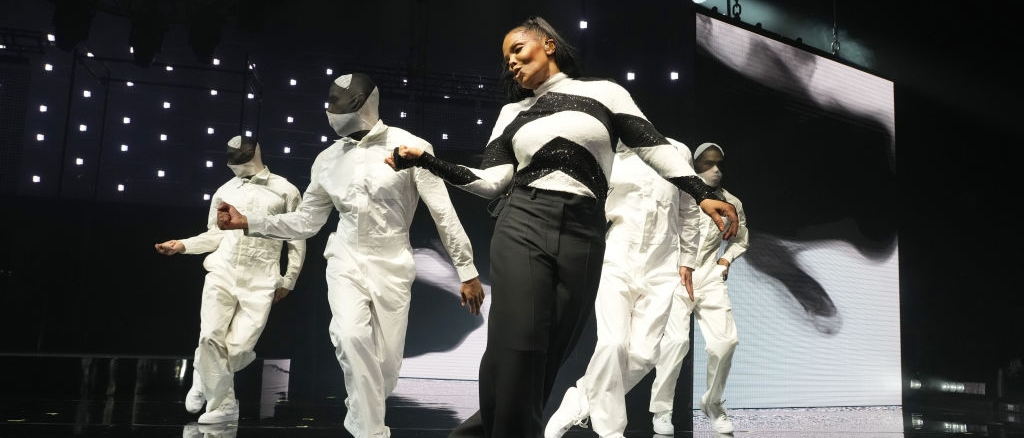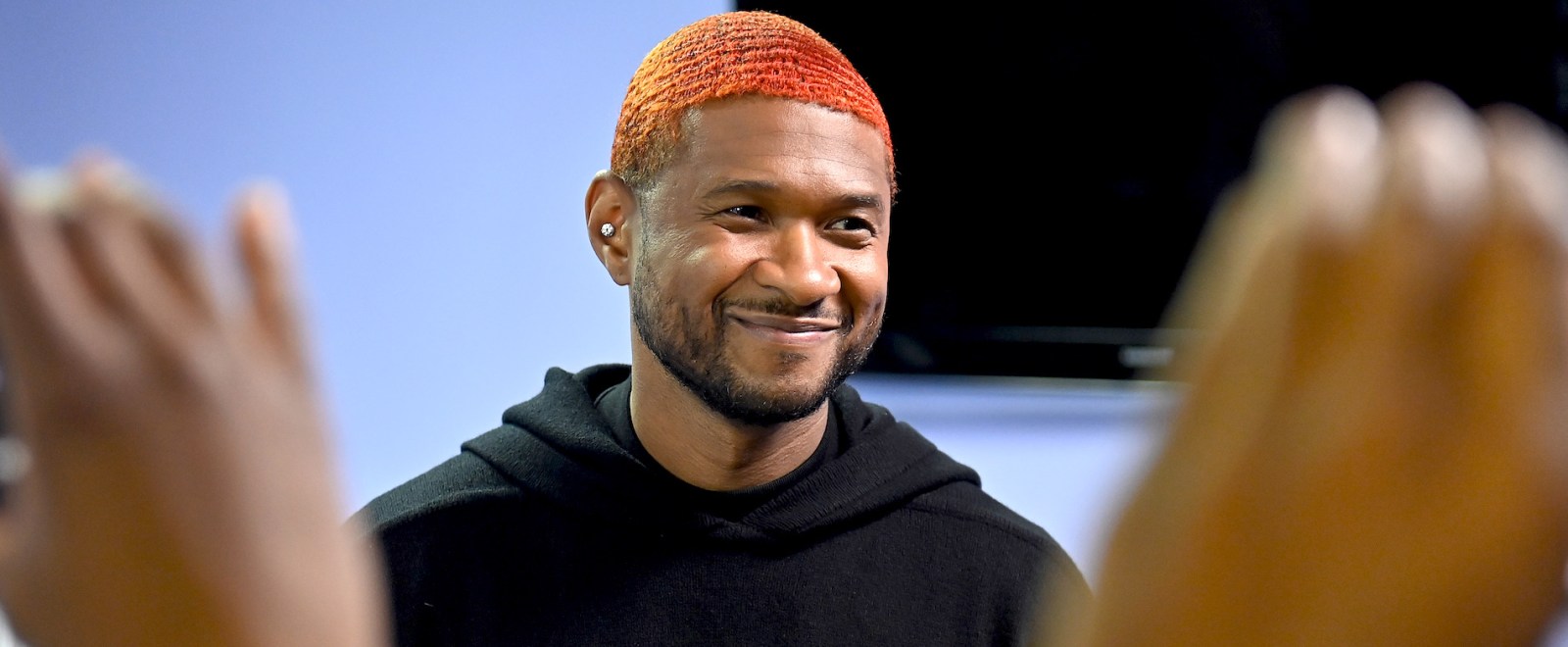K-Pop has become one of the most popular genres in the US in the past few years, overcoming an early reputation as kitschy, niche entertainment to dominate airplay, streams, and award shows for the past couple of years. However, there seems to be one perception the genre hasn’t been able to shake, and the debate driven by that belief has reared its head yet again – and may continue to do so for the foreseeable future.
A few weeks ago, the discussion about cultural appropriation in K-Pop once again surged in response to an Allure feature about Gwen Stefani in which she, unfortunately, mischaracterized the reasoning behind her Harajuku Girls marketing over a decade ago. The conversation has continued ever since, as K-Pop fans and critics alike wrestle with the thorny subject, which has proven to be even more complex than even the convoluted homegrown version.
As one user put it, “I’m here for the Asian community flaming Gwen Stefani for her years of racism, cultural theft, and Orientalism.” However, they didn’t stop there, urging fans to take another step and calling out another set of offenders. “Now, keep that same energy and call out K-pop and the cultural appropriation by Asian musicians who profit from Black culture while being anti-Black.”
The Allure piece, which was originally meant to be a promotional interview for her GXVE Beauty line, instead appalled readers when writer Jesa Marie Calaor (who is Filipino) asked Stefani about the backlash against her over the well-intentioned but tone-deaf mascots, four Japanese women who followed her around like supervillain henchmen. Her answer, in which she recounts a trip to the real Harajuku that spawned the realization, “My God, I’m Japanese and I didn’t know it,” stunned readers with its lack of self-awareness.
Americans have become quite accustomed to the concept of cultural appropriation over the past few years, with ongoing discussions both casual and academic leading to jokes in movies, Twitter arguments, and the downfall of Justin Timberlake. We all know what it looks like when white stars loot the traditions, iconography, and cultural signifiers of other cultures for their own gain; hell, even Tyga apologized for aping Mexican stereotypes in his “Ay Caramba” video last year.
But K-Pop, filtered through not just the American social lens, but the South Korean one as well, presents a more tangled example of just how complex this issue can be. Still, fans have become increasingly vocal about bringing these issues to light, whether it’s Korean stars wearing traditionally Black American hairstyles and mimicking the mannerisms of rappers and B-boys from hip-hop’s foundations or outright blackface being worn by early K-Pop artists in attempts to co-opt some perceived edginess.
Now, I’ll freely admit, I’m no K-Pop expert, but I have written a few times on this site about why cultural exploitation is detrimental to both sides of the equation. So I asked Uproxx’s actual K-Pop expert, Lai Frances, to provide background on the origins and evolution of K-Pop, as well as why it may not be as simple as admonishing artists and labels who may not even understand the cultural context behind the stereotypes they’ve been imitating all this time.
“Artists and idols have found themselves embroiled in appropriation whether they know it or not,” she explains. “Sometimes it’s the stylists’ fault, sometimes it’s the lack of education or exposure to other cultures – rather than just stereotypes – and sometimes plain ignorance.” This owes, in part, to the nature of South Korea’s status as one of the most homogenous nations in the world.
Put simply, unlike the US, which is a melting pot of different cultures and their influences, South Korea is overwhelmingly made up of Koreans. Exposure to outside influences came mainly through Korea’s history of being colonized, especially throughout the mid-20th century, when the US maintained a presence after the Korean War. American troops sparked a cultural curiosity that continued throughout the century, laying the roots of modern K-Pop’s eventual takeover.
As you’d expect from its name, K-Pop was massively inspired by American pop music in the late 1990s (itself increasingly taking on aspects of Europop), when boy and girl bands like Backstreet Boys, N*Sync, and the Pussycat Dolls were gaining popularity. Digging into the backgrounds of these acts, it’s clear that they were inspired as much by Black artists in R&B and hip-hop, fusing these influences to prolific – and profitable – effect.
There are some who would argue that these groups were appropriating Black culture, and at the same time watering it down for wider consumption. It’s no secret that R&B, rock and roll, and hip-hop drove youth culture throughout the last 70 or so years; at the same time, derisive racial attitudes prevented Black artists from seeing most of the advantages of their creativity and labor. “Black sounds, white faces,” the saying goes.
But for Koreans, this darker history is perhaps less accessible. After all, by the time this Black-influenced pop music reached their shores in the pre-internet era, it had already been filtered through these more “acceptable” artists, the backstory whitewashed to downplay the exploitation. As K-Pop began to take root, there was no easy way to illustrate the links and very little context in the Korean imagination for how that exploitation harmed the music’s stylistic originators.
However, as that information became more readily available with globalization, K-Pop artists were able to skip the middleman, so to speak, drawing inspiration directly from Black hip-hop acts. Without the prior background in place to put that inspiration into the proper perspective, though, some of the results were less than ideal.
Frances points to veteran singer-songwriter J.Y. Park, who drew criticism for some controversial missteps. “Known to take influence from soul and R&B with his music, J.Y. Park has had his fair share of appropriating and appreciating,” she notes. “In the ‘90s he was seen dancing with backup dancers donning blackface and afros to his song ‘Still Alive.’ This could be done as South Korea, during that time at least, didn’t know about the harm it caused and the homogenous society it lived in.” The star in question has since apologized, as have many others who inadvertently crossed the line.
Korea is its own country with its own history; it’s understandable that K-Pop artists might be unfamiliar with the derogatory intent behind blackface and minstrel shows. That doesn’t make it acceptable, though, as fans have been quick to point out. “In the past, it may have been dismissed, but considering how big K-pop has gotten within the last decade, and how accessible it is, there should be no excuse for labels and artists to know about the differences between appropriation and appreciation,” says Frances.
Still, there has been friction. “In the time where K-Pop started becoming more prevalent and accessible (second to current gen, so the late-2000s to now), idols that have a hip-hop concept, for example, BIGBANG or 2NE1 could be seen wearing du-rags or repping cornrows/braids in some of their videos,” she continues. This could be seen as harmless imitations by artists who see Black folks in the US, who still epitomize cool globally. But we also signify danger by dint of the demeaning stereotypes that have been promoted by pop culture, which we do not control.
Societies who come to their understanding of American culture by means of flattened caricatures in films and on television may only see and assume that we wear du-rags to look cool. The knowledge that our cultural trappings – even something like a piece of fabric to help protect our hair from damage – have been pathologized into something that symbolizes gangsterism, criminality, stupidity, and lack of sophistication might escape outsiders.
This sort of thing isn’t restricted to just hip-hop and Black American culture, either. In 2020, Blackpink fans called out the band for inadvertently insulting the Hindu religion in their “How You Like That” video. Meanwhile, a slew of K-Pop idols has donned traditional Indigenous American garb in videos and ad campaigns, reducing hundreds of years of cultural meaning and spiritual beliefs to a chintzy costume. These highlight K-Pop’s willingness to imitate the trappings of other cultures without engaging beyond surface aesthetics, which normalizes how pop culture flattens people into unflattering stereotypes based on ethnicity or race.
The internet is changing that, though, and fans are leading the charge. Frances acknowledges, “K-Pop fans support these artists, so it comes as no surprise when fans are the ones doing the heavy lifting. One thing I’ve seen happen was how fans have begun emailing labels and management. And some do take them into consideration for further promotion. I think if fans were to continue the social trends and the social outcry and outreach, there can be changes.”
To try to put this in perspective, I like to think of it in terms of an analogy my own mom used to use on me. If you were in a darkened movie theater, she’d say, and you stepped on someone’s foot while trying to get to your seat, and they said, “Hey, you stepped on my foot!” would you miss half the movie arguing about whether or not you intended to step on their foot, or would you apologize and do your best to avoid doing so again on a potential return trip?
Likewise, if you were the person sitting down and got stepped on, you probably wouldn’t assume the person who did so did it on purpose. You wouldn’t be happy about it, but you’d understand they had no way of knowing that your foot was there, or that you were wearing new shoes, or that you did double shifts all week for a month to afford them. It’s fine to alert someone to an unintentional offense but it’s not worth fighting about and, again, missing the movie.
K-Pop is likely here to stay as a major force in global popular music – at least for a good, long while. And like any musical genre, its adherents will take inspiration from other arts, genres, and communities, changing the qualities and aesthetics of the genre over time. It’s important that these interactions remain respectful, acknowledging that even if something “looks cool,” there might be huge cultural significance or genuine generational trauma behind it.
As Frances puts it, “It’s a matter in the labels’ (and artists’) hands to be accountable depending on which way they want to grow in the market. No matter what, it’s best to instill the differences and acknowledge that whatever and whoever they release out to the masses, will get critiqued more than K-Pop did 10-20 years ago.” More than ever, though, it seems like that critique is coming from a place of love, in the hope that these artists can make this growing genre even more inclusive as it finds new audiences all over the world.

cause tell me why even the biggest names waddle on the stage and would get outdance by a tier 5 nugu group from a company with 3 employees
(@fruitguummi) April 17, 2023
when literally kpop owes black artists their whole industry lmfao https://t.co/lr8mto8SQj
(@purethiquekj) April 18, 2023
https://t.co/XNgw7PfhGz pic.twitter.com/zS1bTLLnxW









 (@blankfan1051)
(@blankfan1051) 
